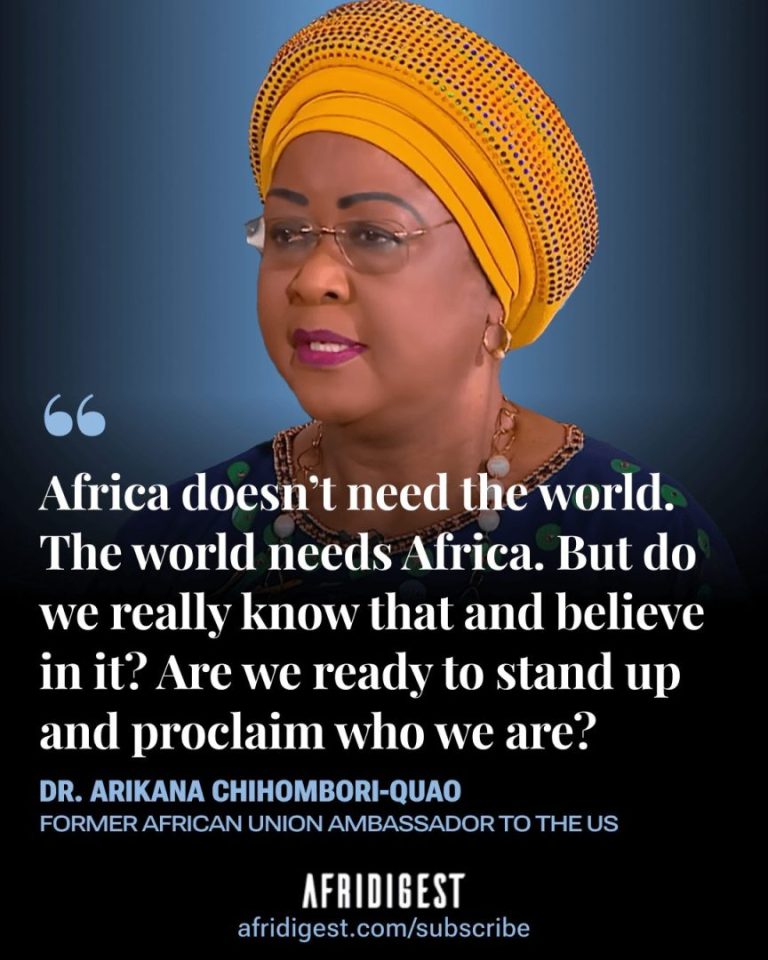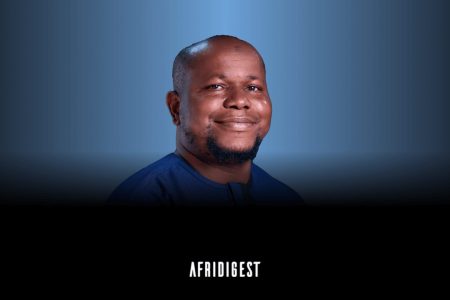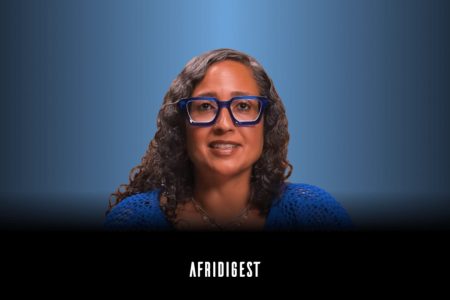“Africa doesn’t need the world. The world needs Africa.”
That’s Dr. Arikana Chihombori-Quao, former African Union ambassador to the United States, challenging the traditional view of global power dynamics.

As an example, ~70% of the world’s cobalt for EV batteries comes from the DRC.
“But do we really know that and believe in it?” she asks. “Are we ready to stand up and proclaim who we are?”
Dr. Chihombori-Quao argues that Africa’s position of perceived dependence isn’t accidental, but rather the residue of colonization — a psychological undoing that political independence never addressed.
“We were defeated where it matters the most: the mind,” she says, pointing to education systems that teach African history as footnotes, leaders who negotiate from weakness despite holding strong cards, and citizens who internalize inferiority to foreigners in their own lands.
Her case is straightforward:
- Africa possesses the resources the world depends on — from minerals critical to technology & the energy transition to agricultural potential that could feed billions
- The continent contributed more to Europe’s post-WWII recovery through resource exploitation than the Marshall Plan itself, she argues, yet remains positioned as recipient rather than provider
- Foreign aid programs, in her view, often function less as genuine development assistance and more as tools of control & destabilization
“We don’t need aid. We need trade. Trade with Africans fairly,” she demands.
But she’s equally direct about where responsibility lies: leaders in government and politics.
“Our leaders are the only ones who can stop the exploitation… Our young people are giving a warning to our heads of states: Shape up or ship out. We’re tired.”
She sees the current global realignment — with shifting aid policies and new calls for transactional relationships — as a wake-up call.
“This is a new game that needs new strategy.”
She urges leaders across Africa to “assemble the best and brightest negotiators” and demand equal partnerships rather than accepting “peanuts.”
The challenge she ultimately poses is as much internal as external: Will Africa step into its power, or continue operating from a mindset of scarcity & dependency?
What’s your take?
- Is the traditional narrative of Africa as dependent on the West fundamentally flawed, or does it reflect current economic & institutional realities that can’t be wished away?
- Are Africa’s leaders truly the primary obstacle to the continent’s development, or is this view too harsh given structural challenges & external interference?
- What would it take for African nations to truly negotiate as equals on the global stage — is it primarily about mindset, institutions, leadership, uniting as ‘one Africa’, or something else?





Share: